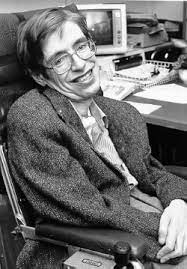
Living with Motor Neurone Disease (MND)
Posted on 20th November 2021Living with Motor Neurone Disease (MND)
The diagnosis of Motor Neurone Disease can take a long time, symptoms are vague and hard to identify with tests until there is significant progression in the disease. A neurologist will normally diagnose the disease which should be done as soon as possible to allow the best support structure to be implemented.
Motor Neurone Disease (MND)
In general, all of the diseases that fall under the MND label, attack the motor neurons. These neurons play a major role in the control of speaking, swallowing, breathing, and walking. The upper motor neurons, found in the brain, send messages to the lower motor neurons, in the spinal cord, and then finally to specific muscles.
When these neurons are not working properly, the messages are not sent, and the muscles cannot function. The lower motor neurons control the movement in the face, throat, tongue, legs, arms, and chest while the upper neurons control chewing and walking. It is unclear what causes most motor neuron diseases, although 10% of cases are thought to be inherited.
There are various types of MNDs, all of which play havoc with motor function. These diseases include Primary Lateral Sclerosis (PLS), Pseudobulbar Palsy, Progressive Bulbar Palsy, and — the most prevalent of all MNDs, Amyotrophic Lateral Sclerosis (ALS).
ALS – Amyotrophic Lateral Sclerosis
ALS, also known as Lou Gehrig’s disease, is one of the most serious types of motor neurone disease. Both the upper and lower motor neurons are affected, leading to the ultimate failure of all voluntary muscles. Initial signs of ALS include weakness in the muscles that control swallowing, chewing, and speech. Over time, there is a weakening in the muscles that are used to move the arms, legs, and to hold the body upright.
This muscular weakness occurs on both sides of the body. Finally, the muscles that control breathing become so weak that those afflicted lose the ability to breathe on their own. At this stage, mechanical support may be needed.
Potential early signs:
- Tripping
- Dropping things
- Slurred or “thick” speech
- Difficulty swallowing
- Weight loss
- Decreased muscle tone
- Shortness of breath
- Increased or decreased reflexes
- Uncontrollable periods of laughing or crying
Potential early symptoms:
- Feeling weak
- Fatigue
- Muscle cramping or twitching
- Muscle stiffness or rigidity
Over time, the muscle weakening will continue to spread throughout the body, eventually causing difficulties with breathing, chewing, swallowing and speaking.The senses of sight, touch, hearing, taste and smell are usually not affected, and for many people, muscles of the eyes and bladder remain functional until very late in the disease.
Not everyone with MND will experience the same symptoms and progression of the disease. It affects everyone in different ways and at a different speed. The initial diagnosis of MND is devastating to the person diagnosed and their families. It can take time for the diagnosis to sink in, and it is encouraged for those diagnosed and their families seek professional therapy to help deal with the diagnosis and understand what to expect as the disease progresses.
Though Motor Neurone Disease is an aggressive and life shortening disease many people live a full and rewarding life with MND. Having support from family, friends and professionals goes a long way in this aiding this.
As a complex homecare provider, we support our clients and their families with their care needs as MND progresses. Caring for a person with MND can take an emotional and physical toll on family and erode the normal family dynamics. Many of our MND clients choose to have our support staff deliver care so they can maintain a husband and wife, father/daughter, and child relationship.
Our care planning is developed with the client and family with input from the multidisciplinary team to ensure your care is delivered how you want it. Special care is taken to ensure we have detailed information to aid us in knowing your wishes and desires, so these are adhered too. As part of the multidisciplinary team, we can refer for specialist equipment and assessments needed as necessary.
In relation to a client with MND we can provide the following support:
- Day sits
- Night sits
- 24-hour care – either funded by the NHS or via a personal health budget.
- Drop in calls
- Companionship support to go to events, appointments, cinema, theater, concerts or on holiday.
The equipment we use for MND:
- NIVI
- Tracheostomy care
- Oxygen – where indicated
- Cough assist
- Oral suction
- PEG care, medication administration via PEG
- Medication administration
- Suppositories and enemas
- Catheter care
- Pressure area care
A very famous scientist who most people have encountered was a brilliant man called Stephen Hawking. He was a theoretical physicist, cosmologist, who lived with Motor Neurone Disease (ALS) for years. He sadly passed away at the age of 76 in 2018. Stephen raised a lot of awareness for the disease and was an inspiration to all.
If you would like to receive more information about our services for Motor Neurone Disease, please visit our degenerative illness page and contact us for more information.
Complete Care Agency – Degenerative Illness
For more information on MND please see the link:



